#ariadne & mino.
Explore tagged Tumblr posts
Text

Ariadne explaining how to navigate the labyrinth (and after) to Theseus. It’s important, she’s committing treason for you Theseus, don’t look at her like that.
#ariadne#theseus#greek mythology#I read the labyrinth myth over the weekend again and have Thoughts#hc Ariadne makes Really Good string theory boards#she’s a good planner too! as long as everything goes well being queen of athens would hopefully shield her from Mino’s wrath… right?#my art#can you tell I gave up on Theseus lmao#it’s been a productive few days arting :]#sanskart (mythos)
974 notes
·
View notes
Text

Bonding with the half-brother 🐮🧶✨
Or, Ariadne and Asterion (the Minotaur) spend some quality time together because f*ck Theseus 💅😌✨
#greek mythology#ariadne#minotaur#asterion#crete#minoa#minoan art#Ariadne's outfit is inspired by ancient minoa#since the myth of the minotaur and the labyrinth is related to knossos palace#i thought that would be nice#ancient greece#ancient minoa#theseus#ancient greek mythology#ancient history#mythology#mythology and folklore#cretan mythology#king minos#pasiphae#phaistos
968 notes
·
View notes
Text
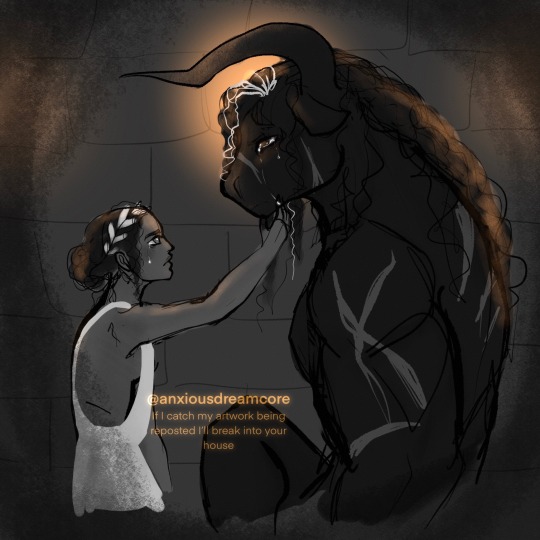
“You abandoned me, sister. Where were you when father king Minos cast me into this prison? Where were you all these years while I pleaded for freedom, forced to eat human flesh to survive?”
“I never forgot you, Asterion. You’ll walk free tonight. We both will.”
.
A.k.a doodle of a Greek mythology AU where Ariadne saves the minotaur and they have a wholesome sibling bond🥹
(Commission list)
.
(Do not repost my artwork on any other platform, with or without credit. I DO NOT give my consent to do so and I will find it☺️)
#hades#theseus#theseus and the minotaur#greek mythology#greek gods#greek legend#the minotaur#minotaur#king minos#ariadne#asterion#asterius
456 notes
·
View notes
Text

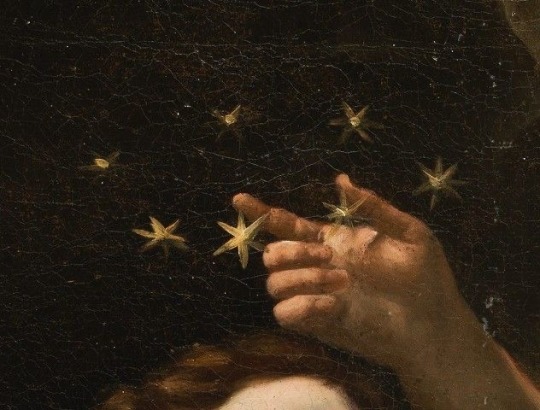
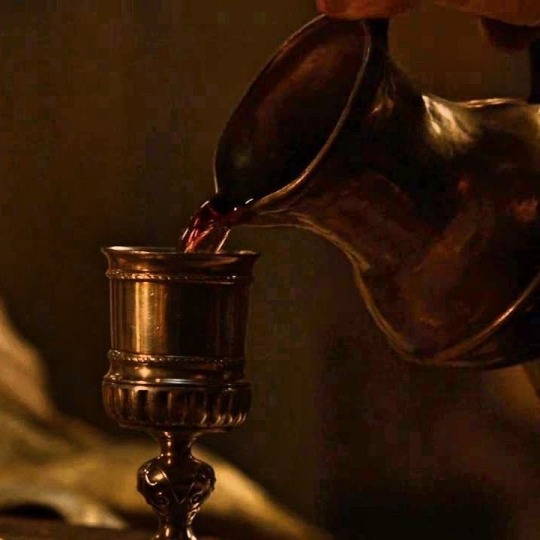


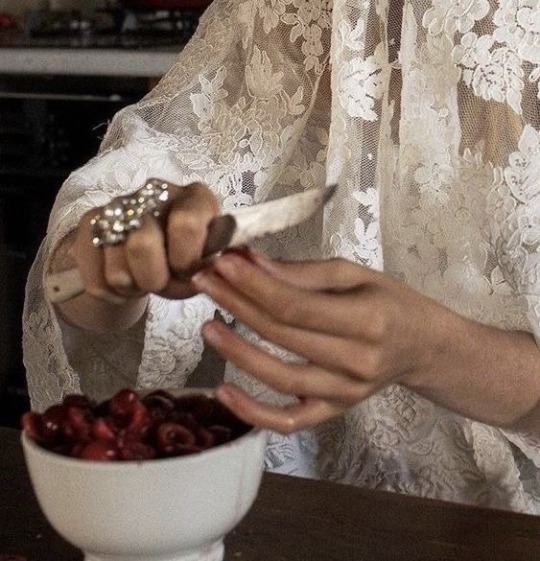



𝓽𝓱𝓮 𝓾𝓷𝓭𝓸𝓷𝓮 𝓪𝓷𝓭 𝓽𝓱𝓮 𝓭𝓲𝓿𝓲𝓷𝓮
a dionysus and ariadne playlist
✦ Bedroom Hymns - Florence and the Machine
✦ Glitter & Gloss - Skott
✦ Fool - Børns
✦ Is Everybody Going Crazy - Nothing but Thieves
and more! listen here!
#spotify#playlist#fanmix#moodboard#greek moodboard#ariadne#dionysus#theseus#minotaur#jennifer saint#madeleine miller#greek mythology#crete#dionisio#spotify playlist#aesthetic#music#ariadne book#greek retelling#trending#tiktok#dionysus aesthetic#bacchus#ariadna#lana del rey#taylor swift#florence and the machine#hades#persephone#king minos
260 notes
·
View notes
Text
with all the myth adaptations out there, one i want to write is where ariadne doesn’t realize theseus intends to kill the minotaur. she thinks he’ll rescue the athenians and get them out and maybe help her smuggle the minotaur to somewhere safe, so she gives him the thread. then he comes out bloodied and with the minotaur’s head and she’s too stunned and in shock to be horrified.
but she’s just betrayed her father and there’s nowhere for her to go so when theseus offers his ship, she boards it. and when he leaves her on naxos, she doesn’t grieve over him, she grieves over her brother and a family that has piled grief upon grief and crime upon crime.
her eldest brother who died and was resurrected but not the same. her other brother who was killed in athens and repaid by the deaths of countless innocents. her sister who’ll marry theseus one day and be punished by a goddess mad at another. her youngest brother called a monster and hidden away until he could be slaughtered. her father who sacrifices children just like his own and who locked away the inventor and his son to die alone.
and her, on that island, bereft and alone. haunted by her family’s ghosts.
#tagamemnon#classics#ariadne#theseus#minotaur#greek myth#greek mythology#the house of atreus is literally cursed but minos’ house made their own curse
400 notes
·
View notes
Text
Have you come to notice in the new KAOS series that whenever Poseidon shows up to mortals, specifically Minoas, it is always in the bathroom?
Which sort of makes sense cause he is the god of the seas and almost God of the water. So Kaos sort of establishes that Poseidon can teleport where there is Open Water? Like those ancient spirits that haunt you and can appear through clear reflections?
Now, this also brings me to another question. When Ari rules, will he also dare to show up while she is in the bathroom? Because I am sure my girl Ari would not take it kindly being invaded in her own bathroom, god or no god.
P.S. It definitely it was a nice touch because it shows how little the gods think or care about humans. To invade their privacy to such degree and not give a shit.
#kaos#kaos netflix#kaos season 1#kaos spoilers#kaos series#kaos show#poseidon#king minos#ariadne#bathroom scenes#that toe scene was traumatizing though#lets be honest#we did not need that scene
38 notes
·
View notes
Text
I've just finished the tv series Kaos and I need to talk about something I loved, that no many people talked about.
SPOILERS AFTER THE CUT
One thing I really appreciated was not only a new retelling of Orpheus and Eurydice (her being tired of him and then dying without the time to break up? Genius).
But one thing was Ariadne's story. Like she doesn't need Theseus to save herself, and she can't even save him, but is still a heroine. She SAVES the minotaur and kills the dictator dad. She is a queen, ready to rule a country without the gods' help. Also, Dionysius falling for her not because she's a helpless abandoned girl, but as she fights and slaughters her own father? Yes queen.
#kaos netflix#she can fix me#kaos#ariadne#kaos ariadne#kaos theseus#kaos minos#minotaur#greek mythology
48 notes
·
View notes
Text
currently thinking about how ages ago my friend sent me a long-ass explanation about why saltburn is an adaptation of the myth involving theseus, the minotaur, and the labyrinth.
nobody asked but here’s some of the fun proof that exists of this:
first and foremost, icarus, the boy who flew too close to the sun. during the party scene, it is evident that felix symbolises this poor ill-fated youth, and the symbolism here is potent. he flew too close to finding out what oliver truly is. he discovered something he shouldn’t have, and dressing him up in icarus cosplay is the perfect showcase for his fate and his mistakes. it’s also brilliant in terms of what icarus actually did to “deserve” death. realistically, he was told not to go too high or too low, but in actuality, such cryptic instructions were difficult to follow mid-flight, and it resulted in catastrophe. felix is trying to navigate the responsibilities of being a good friend with his baggage as someone in a family of rich pricks. it’s hard, and in flying too far away from his background, he “flew too close to the sun” and discovered things he shouldn’t have. as a small nod to further the icarus imagery, felix’s body is discovered under bright and direct sunlight as he lays motionless in his winged costume.
secondly, saltburn is in the center of a labyrinth. the labyrinth lore runs deep in this movie, because not only does the labyrinth function as symbolism, it has lore that runs adjacent to the lore of the actual labyrinth. in theseus and the minotaur, the labyrinth is a construct of greek architect and inventor daedalus, who was conscripted by king minos to create the maze. in saltburn, the labyrinth is constructed upon special request from james catton, the owner of the estate, and a very wealthy man (almost like a modern day king).
the labyrinth (in the original myth) is dangerous to all characters that reside within it. it keeps all in within a chance for escape, and those that get close die tragically. in saltburn, the labyrinth functions as an ode to the ways in which riches and fame poison those that reside in the walls, keeping them locked within its dangerous talons, or in this case, cleanly trimmed hedges. it’s suburbia on a larger and more internal scale. even those that do not have riches themselves, namely farleigh and annabel, do everything they can to remain on the estate and in the good graces of those on the property with immense money. it affects how they act and how they are expected to act. farleigh, as a good example, is very stuck on the particulars of rich people’s behaviour. as mentioned above, those that try to leave the maze die tragically, and icarus is a prime example. felix, in his attempt to be better than the riches of the estate socially allow, flies too close to a possible escape from the confines of the labyrinth and is murdered as a result.
in the story of the labyrinth, it is unsolvable, unless you are clever and quick witted (manipulative), which theseus luckily is. the same is true for oliver. oliver, like theseus, gets into the heads of multiple characters, manipulating his way to the top of the food chain. the scene where oliver views the wooden counterprt of the maze through the head office in the estate, he is told that he shouldn’t be there, and a sense of ominous foreboding takes place. we feel that he has seen something that will change him. however, i believe this is simply symbolism for the fact that oliver has figured out the secret to the maze: a secret that he, an outsider and a poorer, less sociable man should not be aware of, as he is a representation of theseus, a character who has no right being king.
thirdly, oliver is juxtaposed with imagery if the minotaur during the party scene, and though this costume doubles as a reference to the changeling in a midsummer night’s dream, it is still highly important. in the original myth, people are sacrificed to the minotaur on a yearly basis. at first, felix fits the profile for the minotaur: a rich, wealthy man in a labyrinth who is regularly described as going through friends the way a young boy would go through toys. it is also true that the minotaur has often been seen as a controversial figure, one that begs the question “is a monster just a tormented creature fated to behave according to the will of the gods?”. felix’s behaviour, or namely, his attempted deviancy from the behaviour he is expected to show, is a major prt of his character arch. we expect oliver to be the victim of felix’s behaviour exactly because of this. but he isn’t. an easy explanation is that oliver is the minotaur, going through the family members as though they were victims in a maze. however, oliver is NOT the minotaur, as the myth is a lot more complex than the minotaur being the bad guy. despite what we expect, director emily fennel is leaning into the concept that the minotaur’s storyline is that of fate versus free will. the minotaur is cursed by the gods to fall into certain patterns and to be punished for its behaviour, despite it doing exactly what was expected. felix attempts to deviate from what is expected, but ultimately he fits in well with the rich and social, and his death is a punishment at the hands of a sort-of theseus who believes he is more deserving. rather, oliver is also seen to be theseus, who famously invaded the maze, manipulated its dwellers in order to navigate it, killed the minotaur, and then manipulated his way into becoming king as a result. sound familiar? it is because of this that the imagery of oliver as the changeling is particularly important. the horns can be evocative of the minotaur, offering us a red herring, where he is truly disguised as the opposite. it’s a fake out.
fourthly, king minos (owner of the labyrinth) did not die directly at the hands of theseus, he did eventually meet his downfall and was boiled to death in a bath. james catton, head of the estate, dies of a supposed suicide, also not directly by oliver’s hands, but still implicitly connected to the events of the story, much like king minos’ death.
the lore in this film is incredible, and though emily fennel has not said that the film is an adaptation of greek myth, the parallels are deliciously undeniable. saltburn is fascinating, and truly one of the best films of 2023. there is so much stuff jam packed into it, and it’s one of those films that takes a few watches to fully grasp its depth. i love it!
#saltburn#felix catton#oliver quick#james catton#farleigh start#venetia catton#elspeth catton#annabel#theseus#minotaur#theseus and the minotaur#the labyrinth#king minos#princess ariadne#king theseus#capitalism#the saltburn estate#the bathtub scene#icarus#icarus falls#felix saltburn#beautiful symbolism#symbols#symbolism#so much symbolism#greek myth#movie adaptation#film adaptations#saltburn movie#saltburn analysis
96 notes
·
View notes
Text

it means star
been thinking about the parallels between astarion and asterion.
if his parents knew what happened would they have mourned like pasiphae? so close but so far from reach.
#art#young artist#artists on tumblr#aspiring artist#artwork#sketch#digital art#procreate#bg3#bg3 astarion#bg3 fanart#astarion#asterion#the minotaur#theseus#baldurs gate 3#baldurs gate astarion#baldurs gate#theseus and the minotaur#minotaur#dnd#ancient greece#history#greek mythology#pasiphae#ariadne#phaedra#crete#king minos
84 notes
·
View notes
Text

"The gods do not know love, because they cannot imagine an end to anything they enjoy. Their passions do not burn brightly as a mortal's passions do, because they can have whatever they desire for the rest of eternity. How could they cherish or treasure anything? Nothing to them is more than a passing amusement, and when they have done with it, there will be another. " - Jennifer Saint, Ariadne
#literature#litedit#booklr#ariadne#ariadneedit#jennifer saint#greek mythology#retelling#mythology#mythologyedit#moodboard#theseus#books#books and reading#booksedit#dionysus#phaedra#minos#the minotaur#greek myth retellings#greek gods#ariadne x dionysus#icarus#librarysource#booknet#greek myth aesthetic#fictionnet#fictiondaily#userthing#greekmythologyedit
47 notes
·
View notes
Text
I keep forgetting that Dionysus and Ariadne are uncle and niece.
#greek mythology#ancient greek mythology#greek pantheon#Ariadne#Minos#king Minos#Dionysus#Dionysos#dionysus x ariadne
27 notes
·
View notes
Text
A missed potential in Hades (the game)
Ok, listen. I'm a fan of Supergiant Game's Hades (haven't played Hades II yet. Because my PC is a potato and I hope the full version will be in PS4). Yes there are bothersome inaccuracies, but...
The characters are fun, the game is surprisingly not repetitive yet consistent, the mechanics are cool, Hades and Persephone are actually compelling (a miracle in mythology retellings). And Hypnos is a fun lil goober.
But I feel like there was one huge missed potential. No, I'm not complaining about Dionysus for the 100th time or OdyPen being tossed in the trash in Hades II (gosh I hope it's a fake out and they're still together 🙏🙏🙏).
I'm talking about this guy :
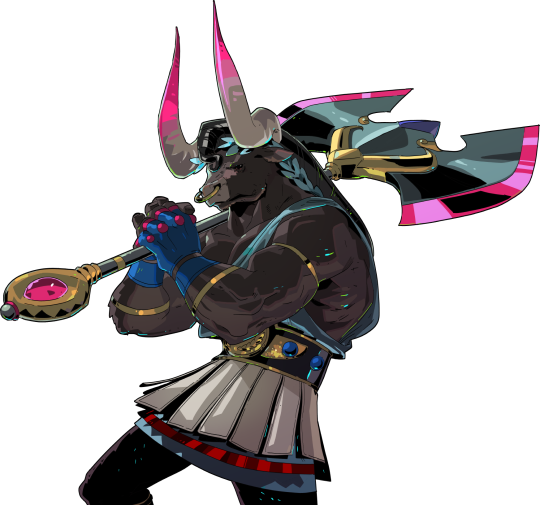
This is Asterius, better known as the Minotaur. Yes it's the third time I talk about him today, but I just had an idea for him that I want to share.
I actually like what Hades did with him ! Again, I have more positive thoughts about this game than negative.
I'd even go as far as to say this is the best version of Asterius I've seen, imo.
He's an actual character, capable of speech. He's not always seen as Theseus' sidekick, even having his own moments with Zagreus. He's the more intelligent one, he's more human than Theseus and I love that about him. Like Achilles, but to a much higher degree, he mellowed down in the afterlife and lost his murderous rage.
The ironic friendship with his murderer is also very cool.
But we could've done so much more with this wonderful concept. Hades is essentially a game about mending broken relationships: Persephone and her family, Orpheus and Eurydice, Achilles and Patroclus, Thanatos and Hypnos... but Theseus and Asterius never really contributed to the main plot. They're just kinda there, doing their own thing.
I think adding ONE element would change everything, an important part of the Underworld (so Zagreus can interact with it) and something interesting for both Theseus and Asterius : the three judges. More specifically Minos.
A plotline where Minos and Asterius' abusive relationship will be discussed and Theseus actually being a good person for once and standing up for his friend.
Maybe with Minos apologizing and seeing that Asterius isn't a monster. And Zagreus being the catalyst for fixing the relationship, because in all those encounters, he learned to know who Asterius is.
Bonus point if Ariadne and/or Phaedra are mentioned. I see the latter appearing. Heck, maybe the former in a "Dionysus wants to resurrect her" storyline.
But this post is about Asterius and Minos. Between the underworld themes, the broken family of Crete, Asterius' humanity, Theseus humbling himself, it'd have been integrated so seamlessly !!
Just by adding a room for the three judges, with whom Zag regularly interacts, or fights as bosses, or just NPCs like Charon/Chaos with unique gimmicks.
Maybe fun interactions with Radamanthus and Aeacus too, though I have less ideas for them.
Please tell me there's a fanfic out there exploring that ! Or that Hades II will somehow do it 🙏.
#it would write itself imo#and maybe seeing who the supportive shade is#like is it someone from Theseus' past ? Ariadne maybe ? Hippolytus (holy moly i only remembered him now ! he could add to the story as well#supergiant games hades#asterius#asterion#minos#theseus#zagreus#idiot me posted it twice... i deleted the second version :)
28 notes
·
View notes
Text
"Carrying the burden of shame made you stronger". I absolutely A-DO-RE this scene because Minos is almost right, but at the same time so far off.
Ariadne spent her whole life torturing herself over a crime she did not commit and this pain did not make her stronger, it made her controlable. What really makes her stronger is freeing herself from this burden, a.k.a killing her father.
28 notes
·
View notes
Text
Headcanon: The main reason why Theseus wasn't freed from the Underworld earlier and had to wait for Heracles to free him was because Minos was angry on him too, due to what he has done to his daughter:
Persephone: That one guy did nothing wrong. Why does he has to be tortured by the Erinyes as well?
Hades: He followed his stupid friend. That's enough of a crime.
Persephone: He made an oath. He had no choice but to follow him.
Hades: He also kidnapped Helen of Sparta.
Persephone: You kidnapped me too.
Hades: I did that legally.
Minos: Do you know Ariadne?
Persephone: Of course I do.
Minos: He abandoned her on the Naxos Island.
Persephone: ...
Persephone: I'll ask Tisiphone to pull out his teeth next time.
#greek mythology#greek gods#theseus#persephone#hades#king minos#ariadne#headcanon#greek mythology memes#incorrect greek mythology#ramblings
31 notes
·
View notes
Text
"The burden of blame made you stronger" Fuck him. How dare he.
I'm actually crying this show is so emotional I swear to God.
#and then the whiplash of Dionysus saying#i think i'm in love#like nearly cackling ngl#kaos#kaos netflix#kaos spoilers#glaucus kaos#ariadne kaos#minos kaos#president minos kaos#kaos episode 7#kaos live-blogging
18 notes
·
View notes
Text

Labyrinth of the Minotaur couple!!! I drew Theseus and Ariadne. I tried giving her a Minoan type outfit.
#minotaur#theseus#ariadne#greek mythology#greek myth art#fanart#oc art#character art#character design#greek mythos#art#digital art#king minos
35 notes
·
View notes